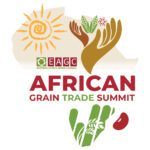In many regions of Africa and the rest of the world, grain trade enterprises—including farmers, aggregators, merchants, processors, and service providers—play a significant role in the socioeconomic system. Nearly half of all food trade in Eastern and Southern Africa involves grains. Such trade takes advantage of already-existing trading opportunities between nations brought on by variations in their various agricultural harvest schedules and capacities to generate enough food grains. In order to ensure that everyone has access to food, to keep prices stable and at levels that are affordable, and to offer a market for producers and dealers, these businesses do more than merely fulfil a commercial opportunity to generate profits.
An opportunity to shape the business environment to help grow grain agribusinesses
The business environment for the grain sector is determined by government regulations that affect grain trade. Thus, the nature of these policy choices may either strengthen grain agribusinesses or significantly reduce their chances. The problems that grain trade value chains, from farmers to consumers, face is inextricably linked to policy developments at the national, regional, and continental levels. These difficulties include weak market linkages, adherence to grain standards, and inadequacy of financial services for the sector, to name a few.
It is crucial that participants in the grain value chain utilize their voice to influence legislation and to make sure that the business environment for grain trade is continually enhanced, given the significance of grain trade in food security, manufacturing, investment, and employment generation. The AGTS offers a highly effective venue for enhancing the business climate for the grain sector by giving grain industry executives the chance to have an open, sincere, and fact-based discussion with senior technocrats and politicians about issues pertaining to the grain sector. As outlined in the infographic below, the AGTS has had a direct impact on a number of policy reforms, including the harmonisation of trade policies, particularly grain standards in the East African Community, the lifting of trade restrictions on grains, the establishment of systems for structured grain trade, and even the very existence of the EAGC as the leading organization for the grain sector in Eastern Africa, serving as a voice for the sector.
An opportunity for strengthen grain trade linkages and networks
The AGTS performs an essential business role by enabling grain industry participants to expand their business networks and take advantage of new business possibilities. It brings together a varied group of international grain industry professionals from all across Africa and beyond. A Grain Trade Facilitation Forum and an Investment Matchmaking session are two special business side-events that the AGTS sponsors. These events bring together professionals in the grain industry to discuss trade and market prospects and to form new investment alliances, respectively. In this way, the AGTS promotes increased private sector investment in grain value chains for the benefit of business prosperity while also enhancing the volume and value of grain trade.

